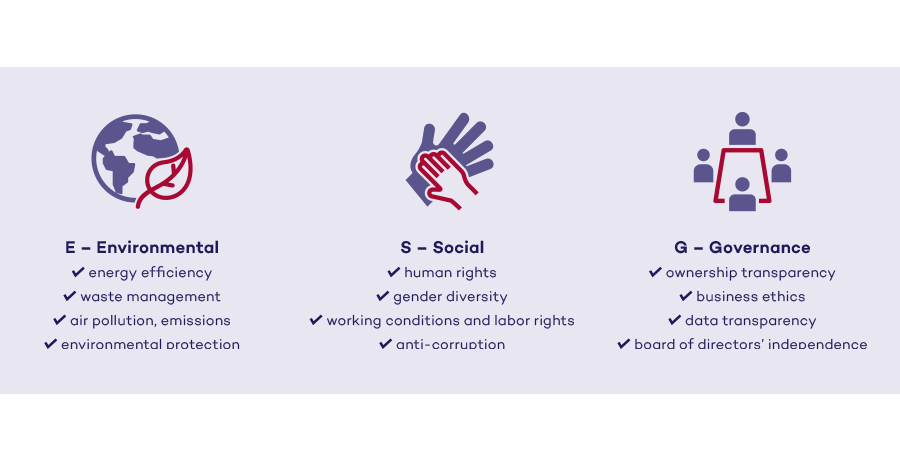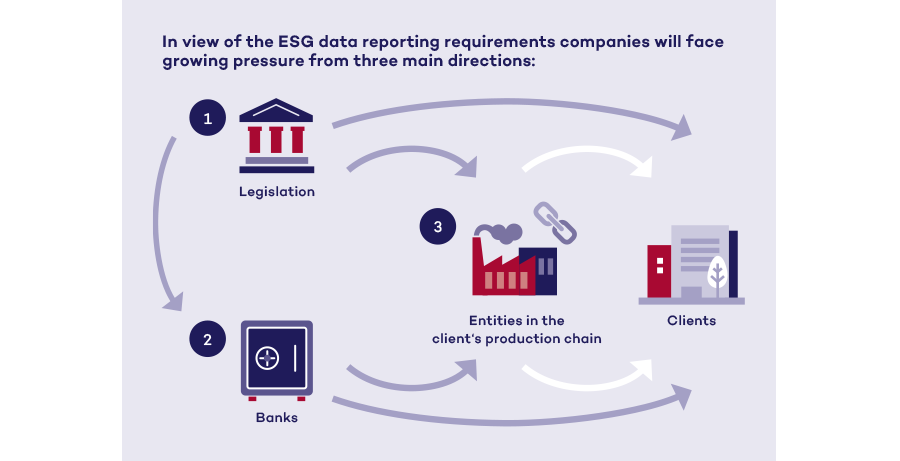World governments are beginning in practice to fulfil their commitments to fight climate change. Companies will play an irreplaceable role in this plan. They are changing their business models and preparing for a new carbon-neutral economy. The transition to sustainable functioning is already a major advantage in business and will be a necessity in the future.
The process of transformation, when launched, is difficult to stop, and at its end there will be winners, survivors, and also victims. Businesses that have not done so yet have to start asking themselves the right questions and, most importantly, try to get answers – Do we know the risks of our business associated with the environment or the ongoing changes in society? Do we know what our sector will look like in ten or more years? Do we have information as to what long-term strategy world leaders have in our industry? – these are just some of them.
In the world, especially in the West, which is ahead of us again, we are already seeing tangible results of successful transitions by some businesses to sustainable operating models. Those businesses manage to reduce their costs, better manage the risks, have easier access to funding from banks, and are more attractive to investors, thus ensuring their relevance in the market for the future.
The fact that sustainable business models are not the domain of just some fringe group of companies is also evidenced by the fact that more than one-fifth of the largest global corporations have already signed up for a commitment to achieve zero carbon emissions by 2050. Taken together, these companies account for sales of nearly 14 trillion US dollars.
Businesses will have to demonstrate in ESG reporting how environmentally and socially responsible they are. On the other hand, the EU will allocate an unprecedented amount of funds to finance projects promoting sustainability.
European billions for sustainability
Indeed, investments in sustainability and social responsibility will not be lost – the exact opposite is true. For businesses that have not yet addressed sustainability at all, we expect an adverse impact on their profitability in the future as a result of higher regulatory pressure. In some sectors, even in the order of higher tens of percent. Hence, companies that have managed to successfully transition to sustainable business models already have a significant competitive advantage.
In addition, companies are offered interesting opportunities to raise funds for related projects. The EU will allocate an unprecedented amount of funding to finance projects promoting sustainability, not only through advantageous loans, but also by means of subsidies. For example, under the operational programmes currently being prepared for 2021+, in particular the Operational Programme Technologies and Applications for Competitiveness, the Modernisation Fund, and the National Recovery Plan. However, such projects need to be thought through and prepared now. For example, the funds will go to projects focused on energy efficiency of businesses, water management, research, development and innovation, or on resolving circular economy issues.
Compulsory reporting on sustainability for companies
While businesses can count on significant support, the EU, on the other hand, will also take a stricter stance on the issue of sustainability. Europe's largest companies, so-called public interest entities, have been reporting data on sustainability (ESG reporting) since 2018. However, they have been using different methodologies to do this. There have also been significant differences in terms of the accuracy of the application of specific metrics. As a result, the data published is difficult to compare. This led to the preparation of unified rules and the expansion of the number of obligated entities.
Therefore, according to the currently forthcoming CSRD (Corporate Sustainability Reporting Directive), ESG reporting will be mandatory from the fiscal year 2023 for all businesses that meet at least two of the following three conditions: they have more than 250 employees, turnover in excess of EUR 40 million, or assets in excess of EUR 20 million. From 2026, smaller publicly listed companies will also have to report the data. In the Union, this will apply to around 50 thousand businesses, which jointly account for about three quarters of the total turnover in the EU.
Businesses will need to demonstrate, among other things, a good knowledge of social responsibility throughout their entire supply chain, not only in environmental terms, but also in terms of human rights, for example. The new directive will also bring about other changes, such as the mandatory audit of such data or clearly defined forms of disclosure.

Sustainability – a challenge for small and medium-sized enterprises
The data reporting requirement may also pose a challenge for small and medium-sized enterprises in the Czech Republic. No direct legislative obligation is being contemplated for the vast majority of them at present; however, the direct obligation of their large customers, for example, will affect them indirectly through their business relations.
The second direction of pressure on ESG data reporting, which even SMEs will actually feel, will be from banks and other financial institutions. Indeed, the European Banking Authority requires those institutions to initiate ESG risk assessments of clients applying for credit from the end of June this year. The institutions should therefore check their applicants’ exposure to ESG factors, and the appropriateness of their strategies for mitigating their impact.
Hence, financial institutions will be increasingly reluctant to provide credit to businesses with environmentally or socially unsustainable models. The situation is starting to look the same with insurance companies. It will be difficult, and very expensive, to obtain insurance for such a business in the future.
Last but not least, pressure from consumers themselves is increasingly being felt as well. The generation of millennials and generation Z have taken the issue of climate protection as their own, and they are fundamentally changing their habits in line with their life attitude. Sustainability plays a big role in where and what they buy or who they decide to work for.

Thus, the transition to sustainable models in business is rapidly moving from an enthusiast initiative to the level of required necessity, not only from a regulatory perspective, but also from a business and economic one. Many businesses will have to deal with this challenge anyway, but they may also perceive it as an opportunity to move forward to a sustainable business model with support from public resources.
“Green” public procurement
Besides ESG reporting, the criteria of social and environmental responsibility contained in the terms of public procurement are yet another topic. This tool, already used in practice in some European countries, will also become increasingly important in the Czech Republic. Entities wishing to make supplies, for example, to the State in the future will thus be motivated to be able to offer a sustainable product or service.
By way of example, this may entail the acquisition of office furniture made from sustainably sourced and processed materials, the purchase of biodegradable disposable cutlery for an outdoor event organised by a municipality, or delivery of representative items to an authority made of so-called upcycled materials produced while ensuring the social dimension of production.
Many contracting authorities who are obliged to make public investments in accordance with the procedure laid down in the Public Procurement Act (PPA) have already begun to use “responsible procurement” elements, including environmental and circular ones. The simple assessment of the lowest bid price is increasingly being replaced by a “lifecycle cost” rating, one of the essential elements of sustainable procurement. But it is still impossible to talk about a dramatic change in the wider ranks of public contracting authorities.
As of January 2021, the amendment to the PPA introduced, as one of the fundamental principles, the obligation of contracting authorities to take into account the principles of socially and environmentally responsible procurement and innovation, regardless of the value of the public contract to be awarded. However, the promotion of circularity through public procurement is just beginning in the Czech Republic. It is necessary to finalise methodologies and specific recommendations of authorities or entities on which contracting entities could easily rely.






